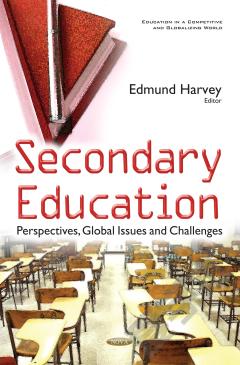Teachers and Teaching: Global Practices, Challenges and Prospects
This book chronicles global issues, related practices, and future prospects in teaching and teacher education. The chapters include comprehensive discussions of literature, research, and visions for education that are applicable around the world. This book evidences how each challenge leads to opportunities for positive change. Several of the chapters highlight characteristics of high-quality, ongoing professional development that is based on the day-to-day experiences of pre-/in-service teachers. This method to teacher education has been shown to contribute to the development of new knowledge and practice in meaningful and sustainable ways. This book also discusses school improvement, and specifically the need to revamp typical approaches to support an integrated model of education, thus improving the overall well-being of students and teachers. In an era of high stakes and accountability, how teachers handle the excessive demands of teaching and remain grounded in their practice is influenced by their beliefs, sense of competence, and individual use of coping strategies. Further, the environments of schools and educational centers substantially impact teachers’ well-being. Some of the chapters in this book explore these concepts in profound ways. With increased globalization, identifying research-based strategies designed for foreign language teaching, and how students learn best is also warranted. Several chapters in this book describe considerations that must be made when approaching foreign language teaching and learning. As evidenced in the contributions to this book, educators and administrators should carefully consider the implications of worldwide research when contemplating educational reform, whether it be at the individual classroom or district-wide level. Overall, this book demonstrates how strong connections between theory and practice support a practical, educated, and concerted approach to challenges that emerge in teaching and learning contexts.
{{comment.content}}








 京公网安备 11010802027623号
京公网安备 11010802027623号